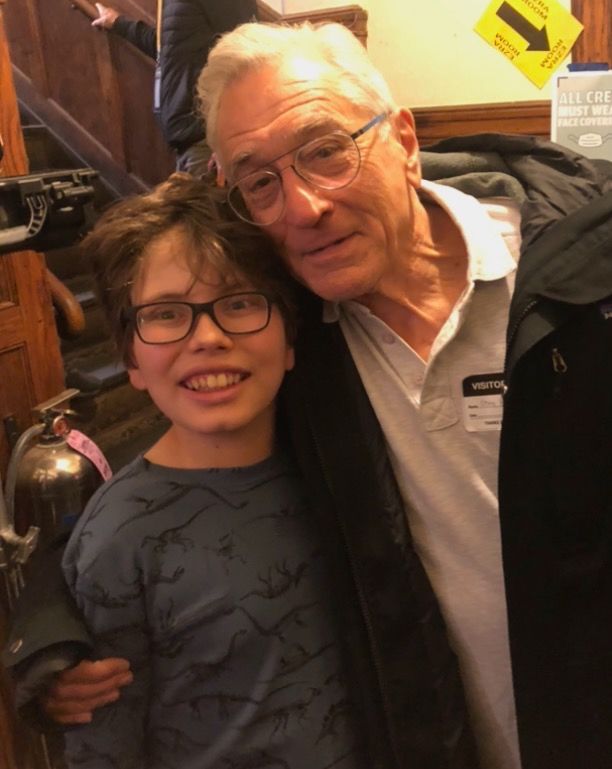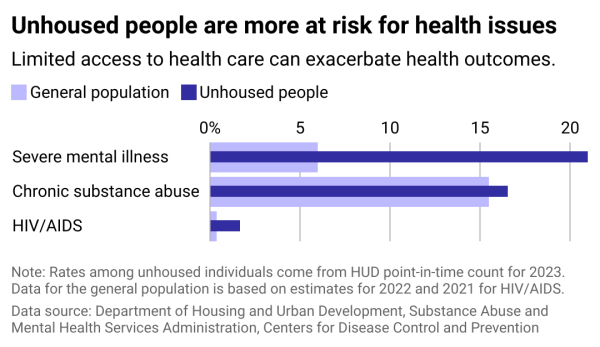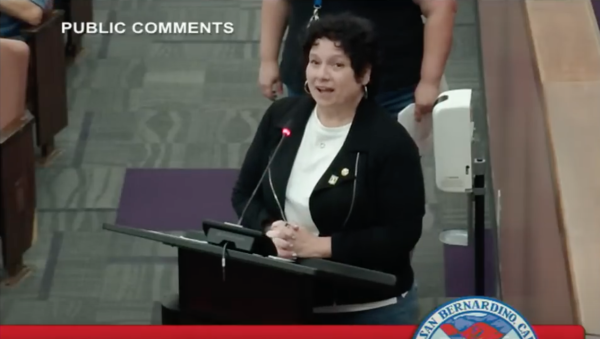According to the American Psychiatric Association, autism is a complex developmental condition involving persistent challenges with social communication, restricted interests, and repetitive behavior. The Centers for Disease Control and Prevention estimates that one in 36 children has been identified as having autism spectrum disorder, or ASD. Academic books have been written to help us understand it while fiction novels and movies with autistic protagonists have been published and produced.
A Hollywood film makes cinema history with the release of “Ezra” at the end of the month in about 1,000 movie theaters across the country — marking the first time a neurodivergent actor is playing a title role.
With an ensemble cast starring Robert de Niro, Bobby Cannavale, Rose Byrne, Vera Farmiga, Whoopi Goldberg and Rainn Wilson, the movie follows a father’s journey co-parenting his autistic son. Written by Tony Spiridakis, directed by Tony Goldwyn, and introducing autistic actor William Fitzgerald, “Ezra” is more than a film about autism; it’s a groundbreaking step toward inclusive filmmaking, inspired by Spiridakis’ own journey of acceptance with his son Dimitri.
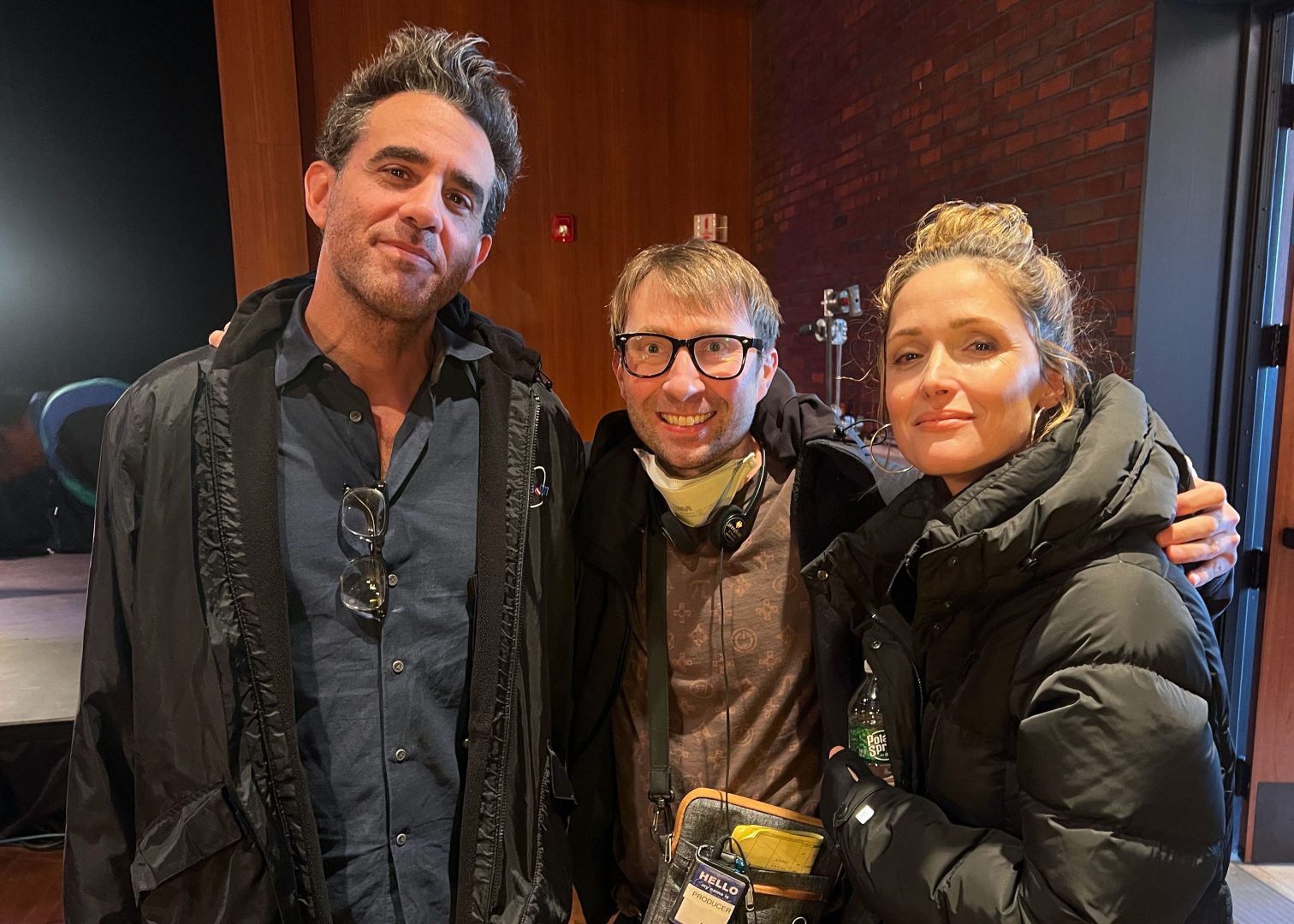
Taking that history-making event one step further, Love & Autism will host Hollywood’s “An Evening with Ezra” on Tuesday, May 24. To be held at The Writer’s Guild Theater in Beverly Hills, it is a first-of-its-kind neurodivergent-affirming film screening. This event aims to become the blueprint for inclusive screening practices in Hollywood, advocating for authentic representation of neurodiversity both on and off the screen.
The entire movie production centered around a neurodivergent-affirming ethos, tapping filmmaker and autistic advocate Alex Plank as the film’s associate producer, creative consultant and DEI advisor to ensure meaningful representation behind the camera as well as thoughtful accessibility for its titular actor on set. Plank continues this work for “An Evening with Ezra,” ensuring the inclusivity of production is continued in this event.
Dr. Jenny Palmiotto, an expert in neurodivergent-affirming care and founder of Love & Autism, is the driving force behind this screening, inviting Hollywood to celebrate the autistic and neurodivergent community and confront internalized ableism in traditional screening practices. The neurodivergent community features prominently in every aspect of the event — from the chefs and musicians to artists and guests.
“Ezra captures the universal themes of love and connection that are often missed within the larger conversation and beliefs about what it means to be autistic,” Palmiotto says. “Everyone deserves to be seen and heard, to have a sense of belonging, and be their authentic self. Ezra gets it right, and we want to reflect that in this event.”
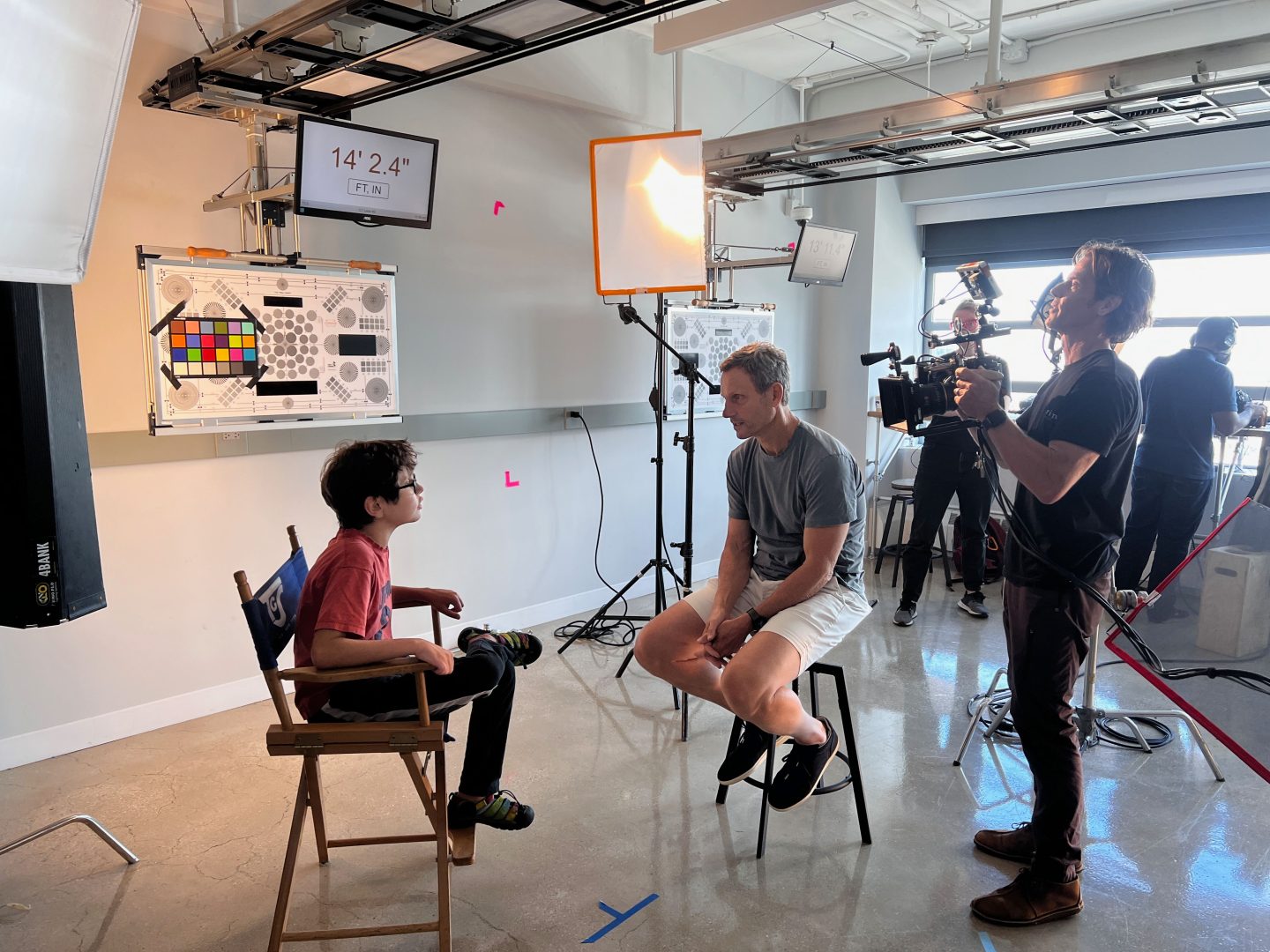
At “An Evening with Ezra,” inclusivity isn’t just a buzzword — it’s a fundamental aspect of the event’s design. Guests can expect a range of thoughtful accommodations throughout the evening, including a peaceful entrance, grounding areas, sensory experiences and more.
Guests will have access to noise-canceling headphones and earplugs, swings for movement regulation, and quiet thoughtful reflection spaces available at any point in the evening. During the screening, guests are invited to drape a colored sash on a neighboring chair to ensure spatial needs are respected discreetly and effectively.
The evening will also prominently feature autistic talent including “The Autistic Chef” Vanessa D’Souza, harpist Evangeline and violinist Navid. Guests will be invited to explore intersectional art installations by neurodivergent artists Dimitri Spiridakis and Maze Creatix.
By email, Palmiotto and Plank talked about how the movie came about and their involvement with it.
“The film was written by Tony Spiridakis who has an autistic son. I was brought on by Bill Horberg and Tony Goldwyn who wanted to make sure we cast an autistic actor and was a proponent of ‘nothing about us without us’ — a concept I introduced him to,” Plank states.
Getting films produced is very challenging and filled with obstacles, but “Ezra” was blessed with good fortune. Plank explains. “Films have gotten harder and harder to finance recently but Ezra is a story that struck a chord with a lot of people. Bill Horberg has a son on the autism spectrum so Closer Media and its founder Zhang Xin were instrumental. Jon Kilik, who produced De Niro’s directorial debut A Bronx Tale, also produced our film and was on set every day. Tony Goldwyn was a powerhouse in terms of getting things in place. And Wayfarer Studios also made this film.”
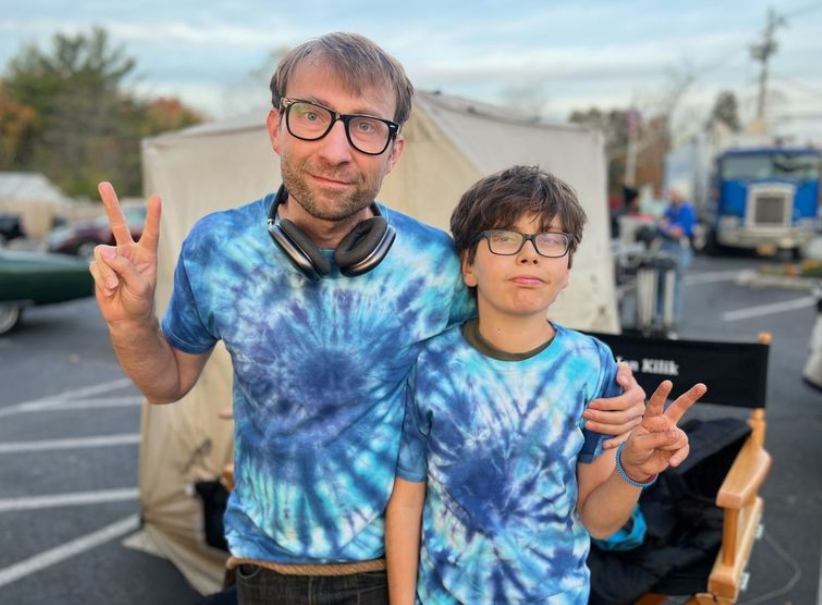
One misconception about autism is that it’s a rare condition, which Plank sets straight. “Autism is much more common than people realize,” elucidates Plank. “Being autistic is another way of being human, so this film takes on a story that is part of many of our lives. What ‘Ezra’ does that other films have not done is within character development of Ezra, played by William Fitzgerald. The character Ezra is more nuanced and authentic than autistic characters in previous films. Autistic people were included from start to finish and the autistic experience on which I think contributed to the overall success of the storyline and resulting film.”
Having the support of esteemed Hollywood personalities right at the start attracts a stellar cast, as Plank discloses. “Robert De Niro’s son is autistic and he had a very strong reaction to ‘Ezra.’ So having him involved didn’t hurt. But Tony Goldwyn, our director, managed to get a lot of great actors involved because he is so beloved and respected. For instance, Whoopi worked with him on Ghost. A lot of our cast has a personal connection to autism as well.”
Plank continues, “I served as the consultant and associate producer for ‘Ezra.’ Having a creative role was important to me as an autistic person because I adhere to ‘nothing about us without us.’ It took us less than 30 days to film. I think everyone was really impressed with how well everything went. Autistic people are often underestimated and so I think that was part of it.”
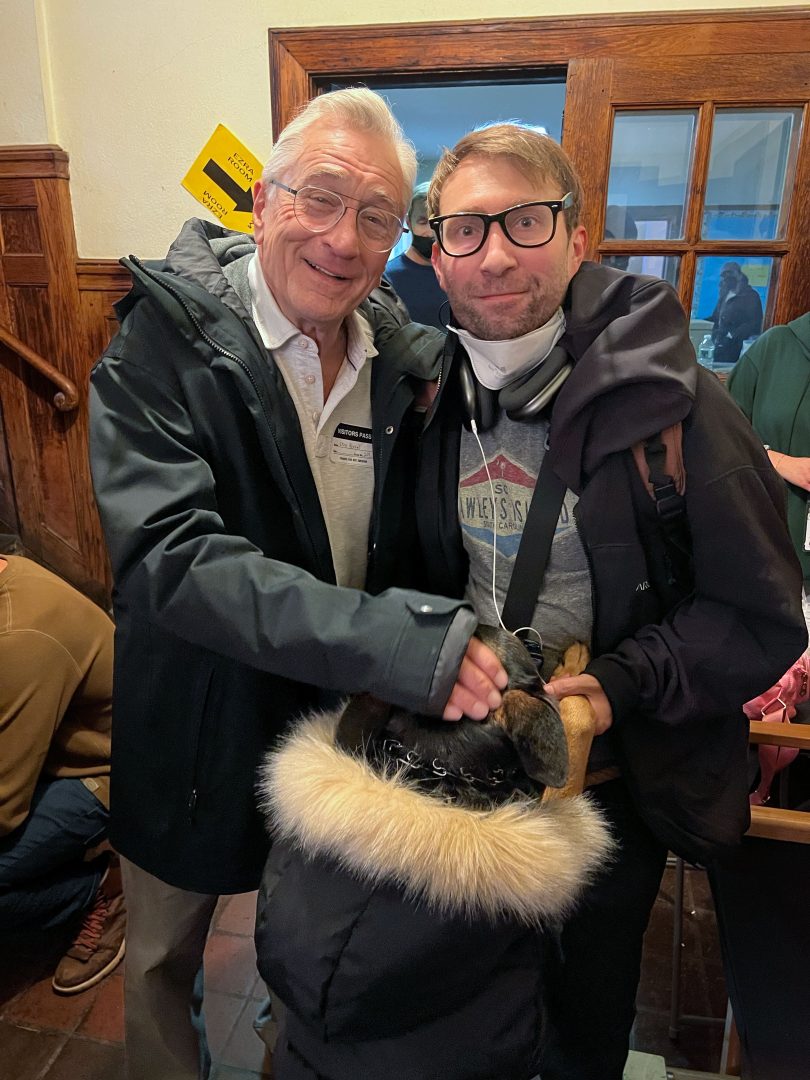
False impressions about autism abound, as Palmiotto and Plank reveal.
“There are way too many misconceptions about autism to be able to list them all but some of the most common are related to the way we think about disability in general,” states Plank. “Autistic people don’t overcome our own limitations. We overcome society being set up in a way that doesn’t align with the way neurodivergent individuals function. I’m autistic myself so everything I do involves neurodivergence (at least my own). I founded a website called WrongPlanet.net when I was a teenager. Since that time I’ve been doing public speaking and activism. I majored in Film at George Mason University and began working on TV series and films. I worked on The Bridge on FX as a consultant and also acted in it. I also guest starred on The Good Doctor.”
Palmiotto adds, “Misconceptions about being autistic are discriminatory as they create access barriers in all systems. Each of us is responsible for examining our own ableism and how these internal thoughts stigmatize and pathologize those that are autistic. When we make assumptions that autistic people are broken versions of ‘normal,’ we have a human rights issue.
“It isn’t hard to change our internal thoughts and actions, it just requires us to accept the invitation to do so. Alex, myself and so many others work towards dismantling ableism, when we do this we create a better world. As a neurodivergent-affirming therapist, I see this work as not just the work of autistic self-advocates and their family members, but all of our journey. My work within neurodivergence is to help all of us accept the invitation to challenge ableism for autistic people.”
“Film has a way of moving people towards change even when we have no lived experience with the story. ‘Ezra’ invites viewers to shift their perspective on what it means to be autistic. Ezra’s story is one of universal themes of becoming, authenticity and love. Each character becomes a better version of themselves when their loved ones are their truest self. Even more than that, it’s a story of love and the risks that we take for those we love. Within this, ‘Ezra’ shows us all that autistic people want and need the very things that we all need. This is what I hope the audience takes from this movie; that each person deserves the human right of being their authentic self and when we allow for that in others, autistic or non-autistic, we all a better for it,” Palmiotto concludes.
Wiser words have never been spoken. Would that Ezra and its film screening event “An Evening with Ezra” serve as the standard for inclusivity in Hollywood.

